
Actor Sean Penn (left) and Ukraine President Volodymyr Zelensky in a still from the documentary ‘Superpower’.
| Photo Credit: Special Arrangement
In early 2020, the 70th Berlin International Film Festival (Berlinale) was the last major film festival to be held before the COVID-19 lockdown, after which it was scaled back for two years. Next week, the festival, known for being the most avowedly political of the ‘Big Five’ (Cannes, Toronto, Venice, Sundance and Berlinale) will be back in its fully in-person format, proudly wearing its heart on its sleeve.
For instance, the festival mascot, the Berlinale bear, will don the colours of the Ukrainian flag — blue and yellow. And the event will showcase three movies on life in Iran, including a documentary on 62-year-old filmmaker Jafar Panahi, who was released last week after seven months in jail for speaking out against the government. Reflecting a socio-political landscape that has witnessed several seismic shifts over the past three years, Berlinale 2023 (February 16-26) has leaned sharply into these global developments.
The festival will see the world premiere of Hollywood actor Sean Penn’s much talked-about documentary, Superpower, a portrait of Ukrainian President Volodymyr Zelensky. Filmed covertly during the Russian invasion of Ukraine, the film captures Zelensky’s efforts as well as Penn’s own reflections on the war. Last year, Penn’s meeting with the Ukrainian President made headlines when he gifted one of his Oscar statuettes to him, sparking off speculation about a possible documentary project.
Political value
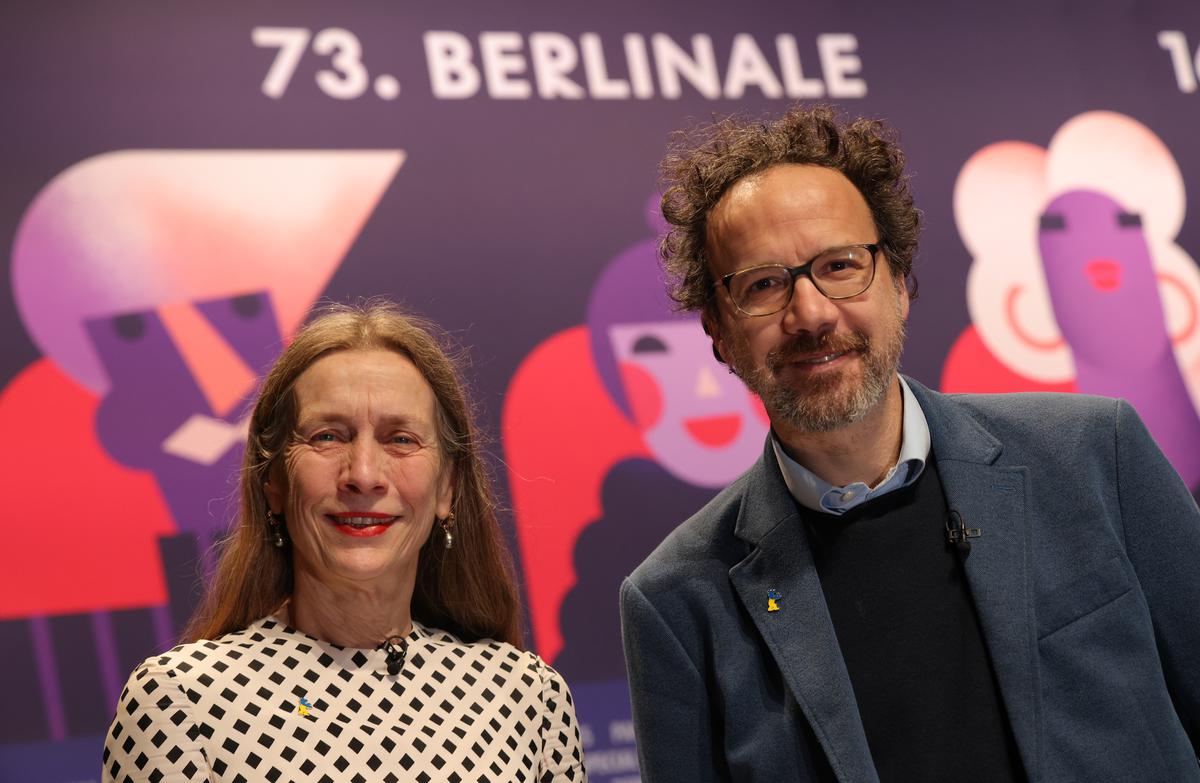
Mariette Rissenbeek (left) and Carlo Chatrian, directors of Berlinale 2023.
| Photo Credit:
Getty Images
“The festival is taking place exactly a year after the war started,” says Carlo Chatrian, Berlinale co-director. “So, it is perhaps more relevant to show this film in Berlin because we are so close to Ukraine, we have so many Ukrainians living in this city, and the film has political value.”
Last year, the festival banned the participation of Russian government-backed film companies and media outlets, which has now been extended to Tehran-funded productions. The Berlinale was the first European festival last year to restrict Russia, compelling others like Cannes and Venice to follow suit. “We believe that film festivals can support the struggle in Iran,” says Chatrian. “This year, our films have a strong element of reality.”
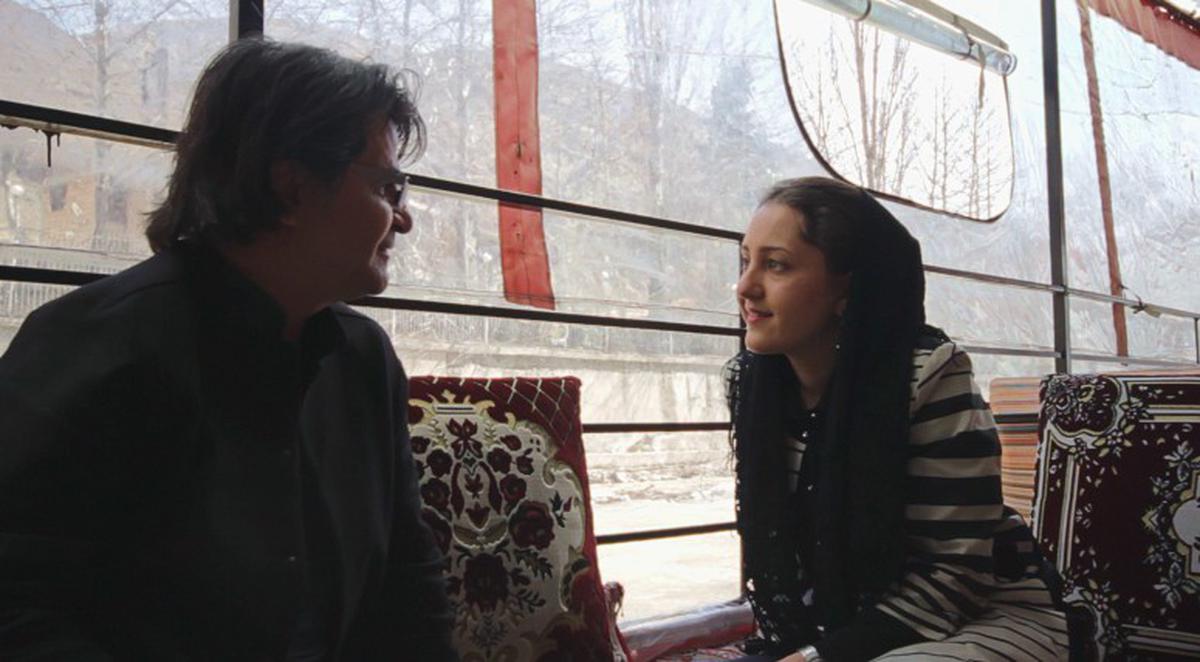
Iranian filmmaker Jafar Panahi (left) in conversation with actor Aida Mohammadkhani in Indian filmmaker Sreemoyee Singh’s documentary ‘And, Towards Happy Alleys’.
| Photo Credit:
Special Arrangement
The three films on Iran in the festival’s Panorama section — curated under the theme ‘film as a tool of resistance’ — include a documentary by Indian filmmaker Sreemoyee Singh, titled And, Towards Happy Alleys. Shot over several years, it chronicles conversations with Panahi and other Iranian artists and critics as they persevere to balance artistic freedom with personal safety.
No Indian competition
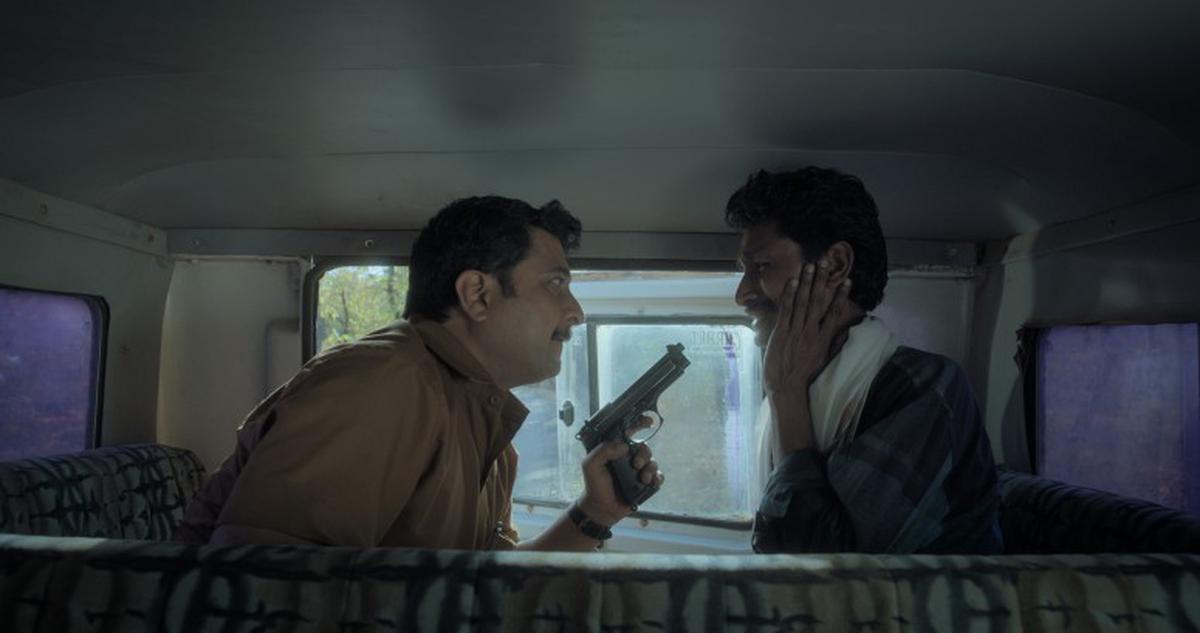
A still from Marathi film ‘Ghaath’, directed by Chhatrapal Ninawe.
| Photo Credit:
Special Arrangement
Singh’s documentary is among the two Indian features in Panorama, the other being Chhatrapal Ninawe’s Ghaath. The Marathi film — a thriller that follows the tussle between Maoist rebels and the state in the forests of central India — underwent a tumultuous journey even before its world premiere at the Berlinale. It was previously selected for the 2021 edition of the festival and dropped last minute. In a since-deleted social media post, filmmaker Ninawe had alleged the then-co-producer Jio Studios of censoring the project. Now acquired by Shiladitya Bora’s Platoon One Films, the movie is finally coming to Berlin.
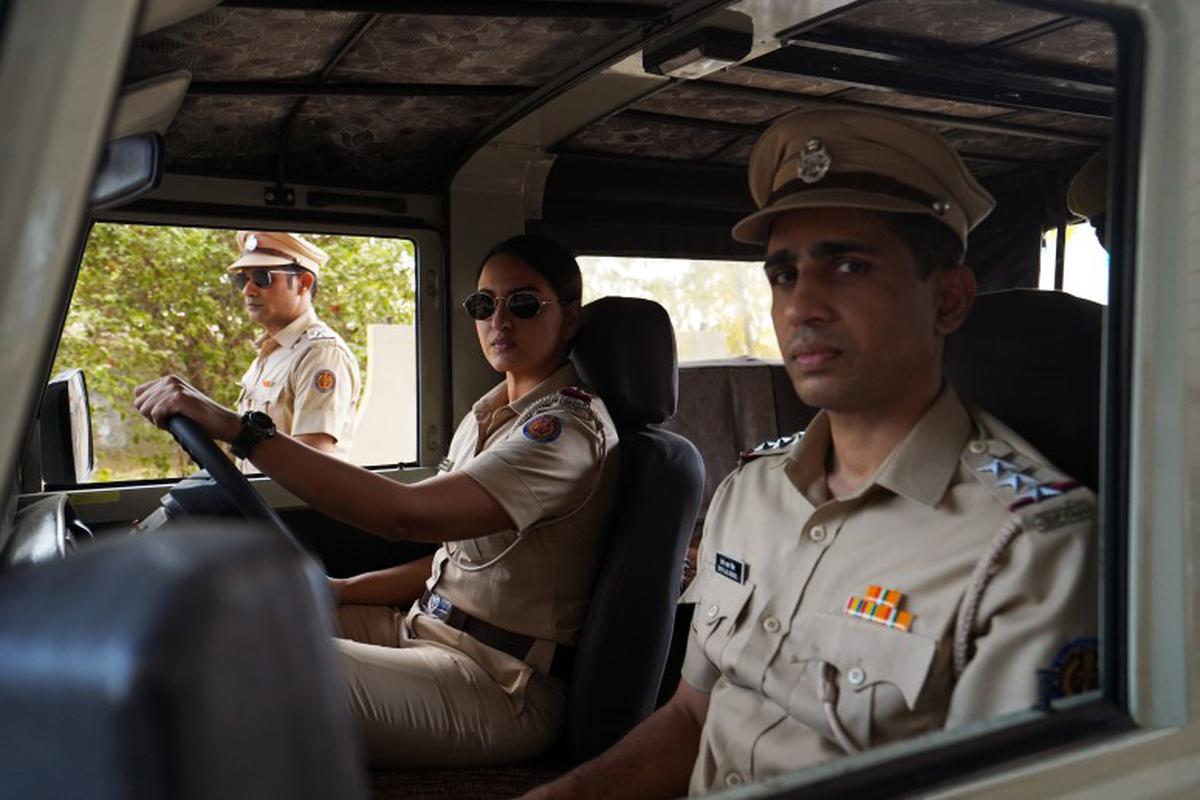
Sonakshi Sinha (left) and Gulshan Devaiah in a still from ‘Dahaad’, the first Indian web series to premiere at Berlinale and compete for the inaugural Berlinale Series Award.
| Photo Credit:
Special Arrangement
In the prestigious Competition section, there is a conspicuous absence of films from South and West Asia, and Africa. While there is no Indian film in the category yet again, Reema Kagti and Zoya Akhtar’s Dahaad is the first Indian web series to premiere at the festival and compete for the inaugural Berlinale Series Award.
The crime drama set in Rajasthan features Sonakshi Sinha, Vijay Varma, Gulshan Devaiah, and Sohum Shah. Another Indian series, Brown, a neo-noir thriller starring Karishma Kapoor, has been picked for Berlinale Series Market Selects. The section highlights shows that have market potential.
Youngest jury head in Kristen Stewart
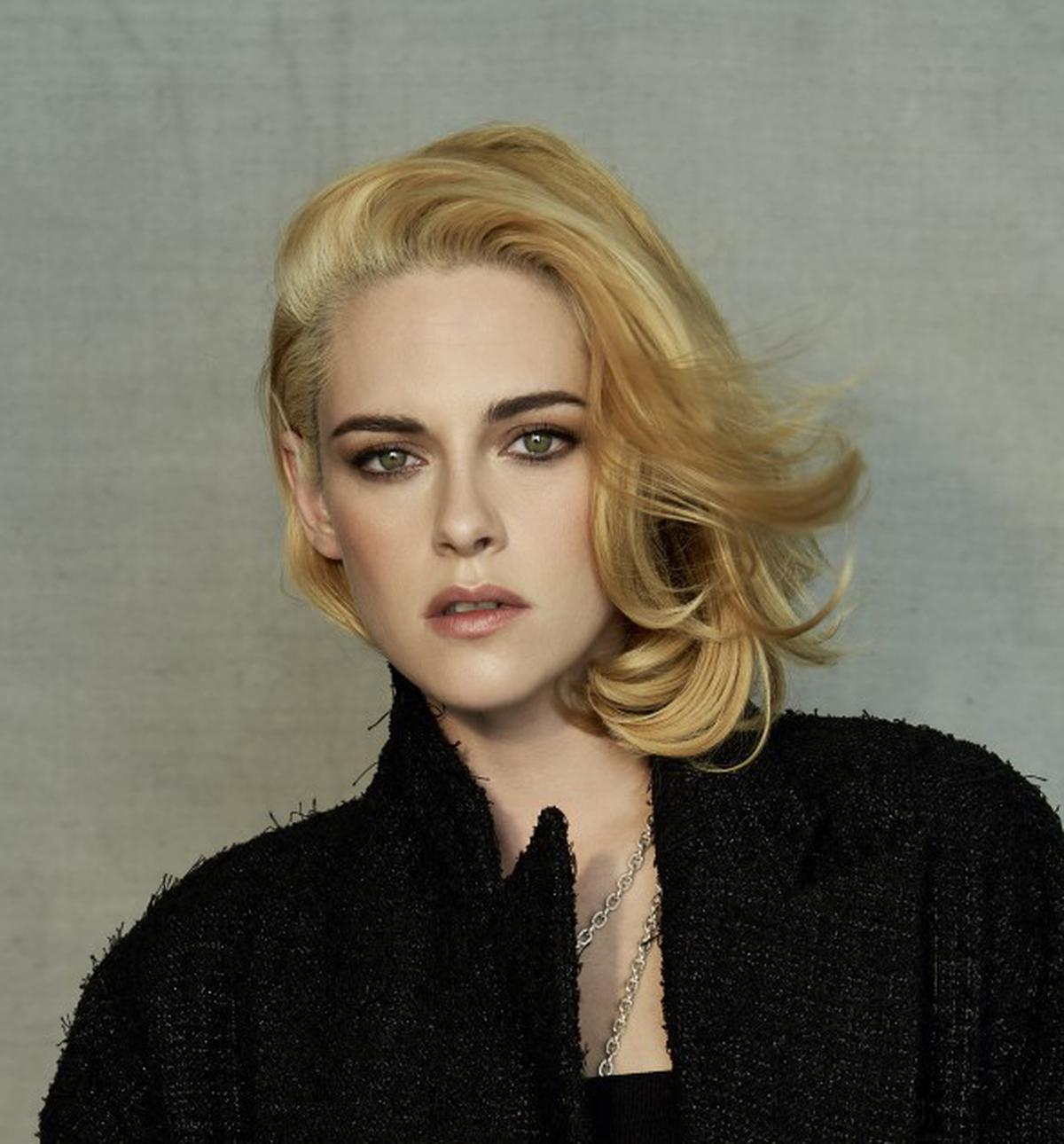
Actor and soon-to-be-director Kristen Stewart, 32, is the youngest person to lead the jury in the Berlinale’s 73 years.
| Photo Credit:
Special Arrangement
Taking place during the bleak German winter in the predominantly corporate neighbourhood of Potsdamer Platz, the festival, unlike Cannes, is not known for its glamour. There are only a handful of Hollywood productions this year and very few A-list actors and filmmakers are expected to walk the red carpet.
Notably, actor and soon-to-be-director Kristen Stewart is the president of the international jury, making her the youngest person at 32 to lead the panel in the festival’s 73 years. “Young, shining, and with an impressive body of work behind her, she is the perfect bridge between America and Europe,” says Berlinale co-director Mariëtte Rissenbeek.
Filmmaker Steven Spielberg will receive a lifetime achievement award, and present The Fabelmans, nominated for Best Picture at the Oscars. Opening the festival is Rebecca Miller’s romantic comedy, She Came to Me, starring Peter Dinklage and Anne Hathaway.
Actor Cate Blanchett and director Todd Field will premiere a short film, The Fundraiser, making up for the otherwise low-key Hollywood presence.
The writer is a journalist based in Berlin as a German Chancellor Fellow.
Stay connected with us on social media platform for instant update click here to join our Twitter, & Facebook
We are now on Telegram. Click here to join our channel (@TechiUpdate) and stay updated with the latest Technology headlines.
For all the latest Entertainment News Click Here
For the latest news and updates, follow us on Google News.
